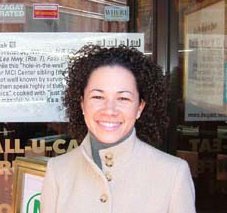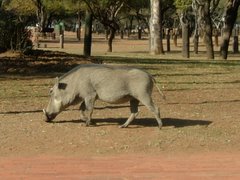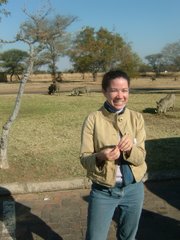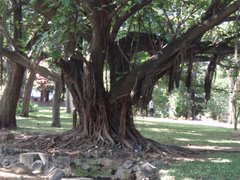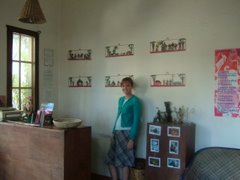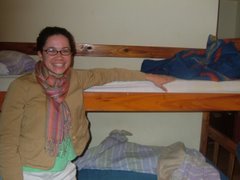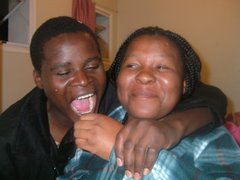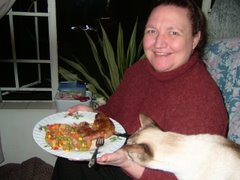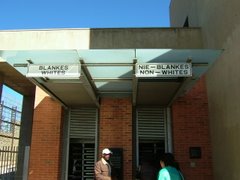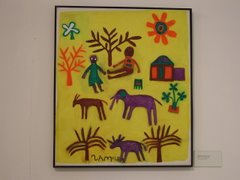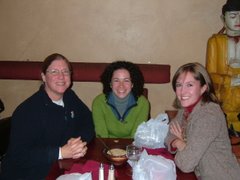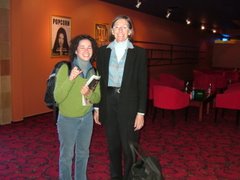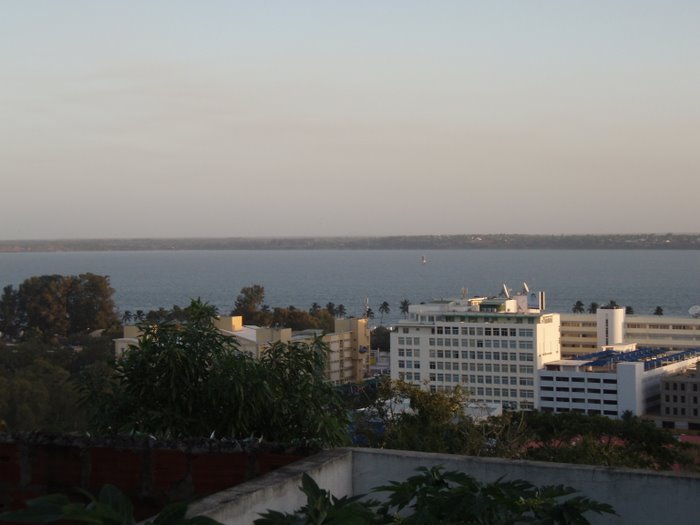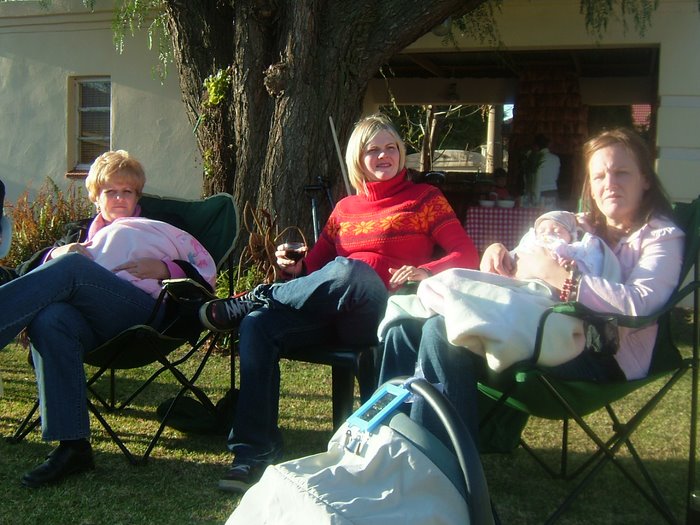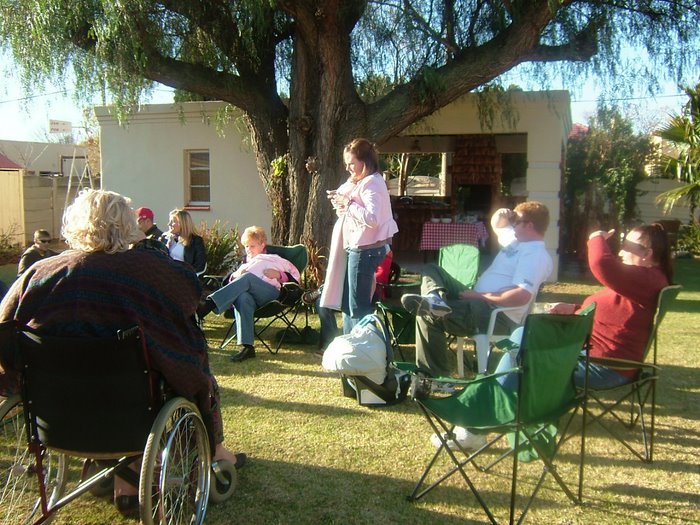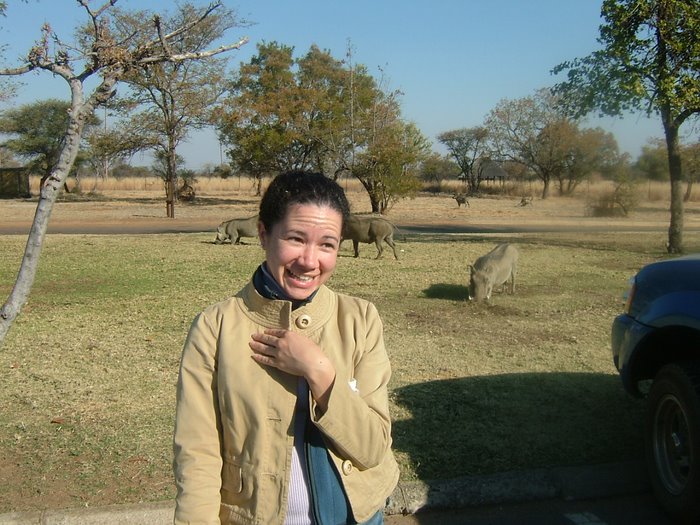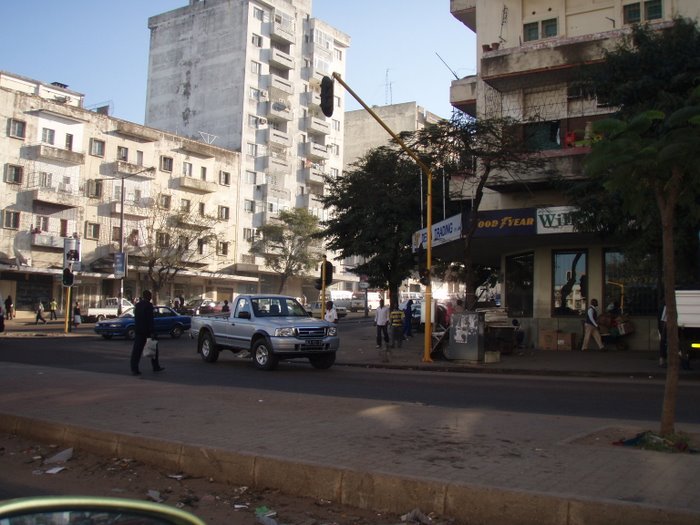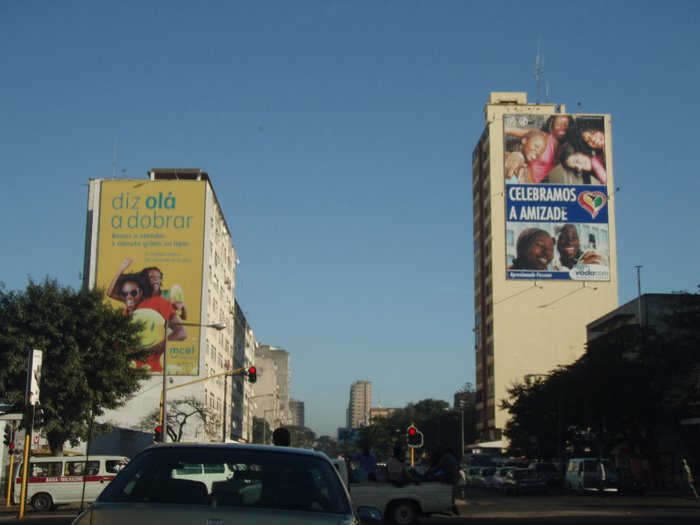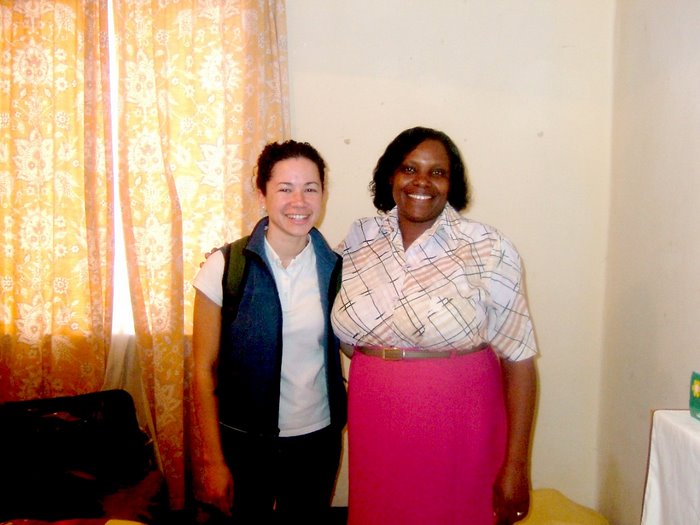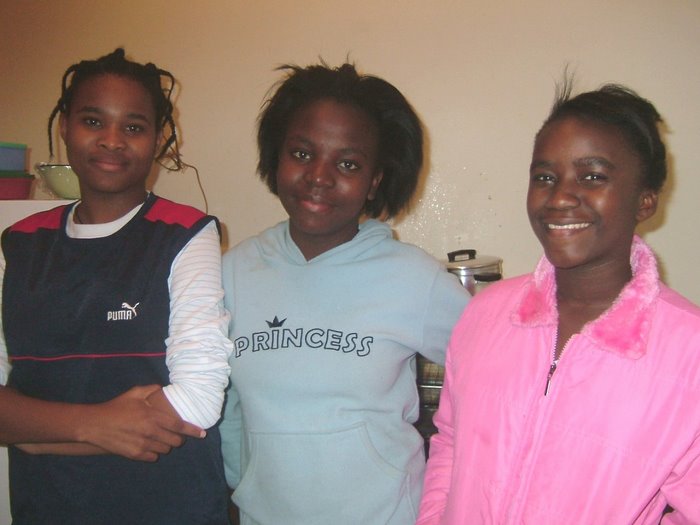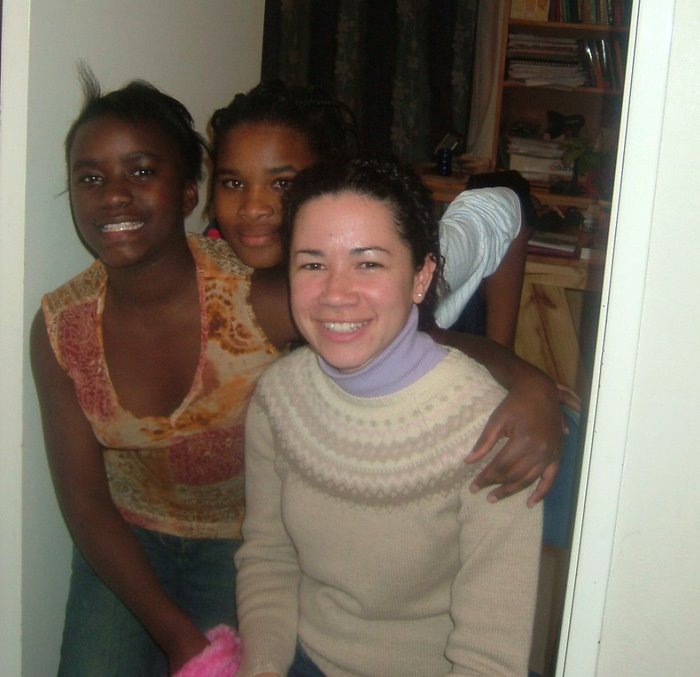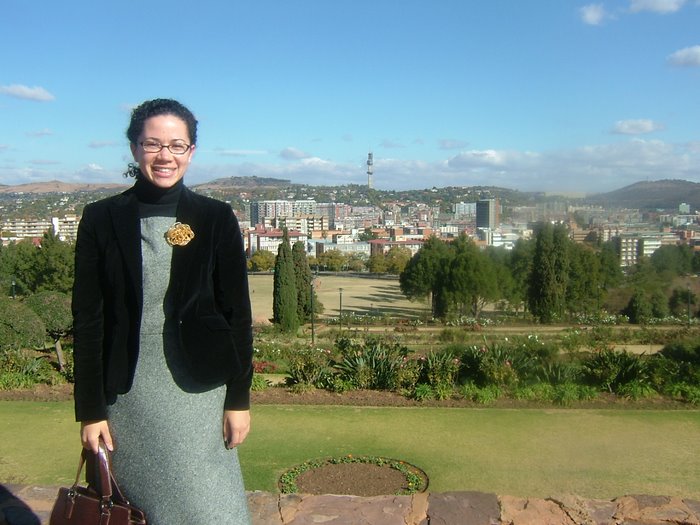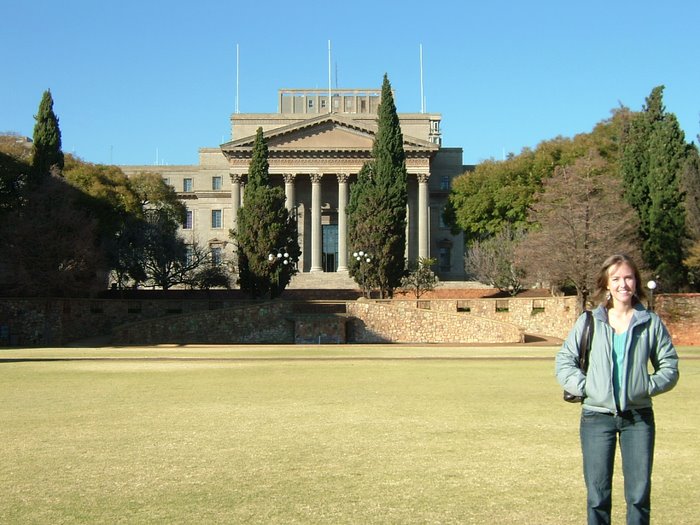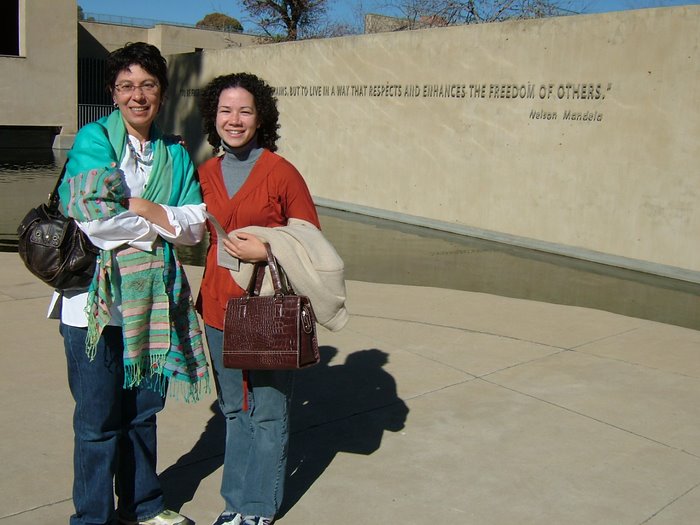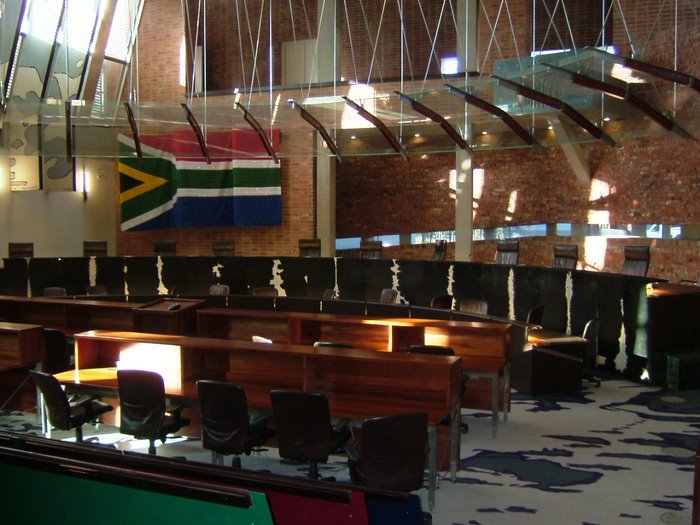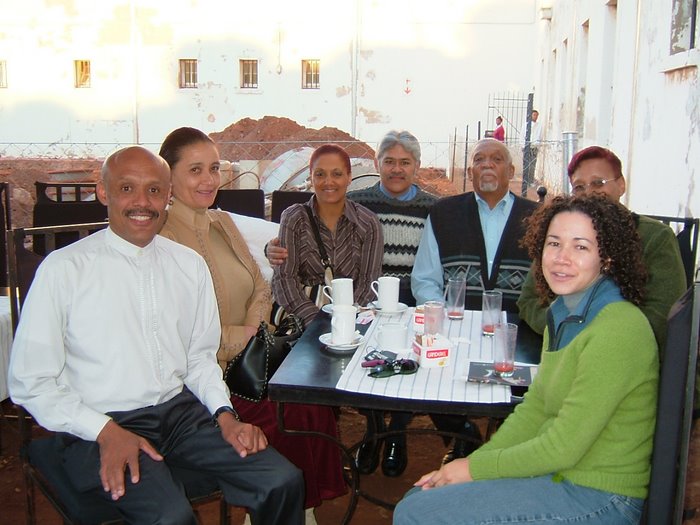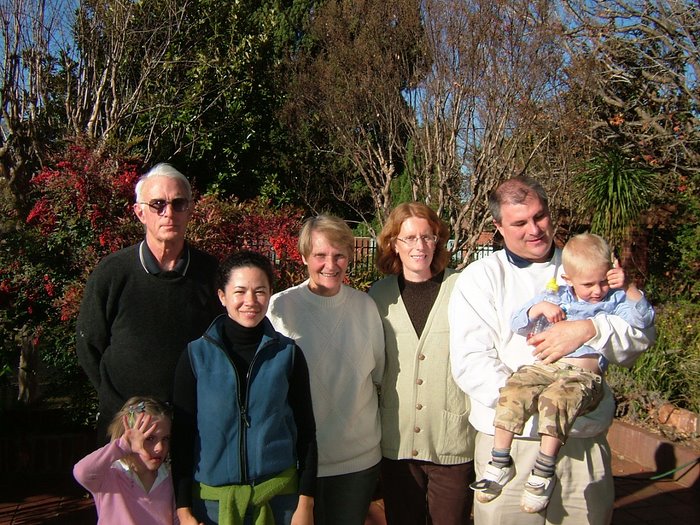FYI - I posted three blog entries today, so be sure to read below to find my entries about African engagements and "the new South Africa."
Hi Friends,
I’ve just returned from my trip to Mozambique and I wanted to write to share with you all what that experience was like. I boarded a Greyhound bus on Thursday morning, before the sun came up, at 6:30 am and for the next 8 hours I traveled east through Nelspruit into Maputo. My host Helen packed a delicious gourmet lunch for me to take on the road. She says its just “the South Africa thing to do” to pack a lunch because the exits for food and the food selection can be very poor. So she bought me lots of fruit, guavas, Swiss chocolate, and mini sandwiches to take with. I’ve been so fortunate in that both of the people I’ve spent time with here in SA have been excellent cooks and have really spoiled me on SA cuisine. Well, after my meal had been devoured and I was peacefully resting, I was tapped on the shoulder by a man, a Greyhound employee. He asked whether I had a visa, and I said, “No, I was going to get one at the border.” (Now, this point in the story is where my Dad is probably starting to get nervous : ) … Now, online it does say that travelers can purchase a passport in advance or at the border, so I opted for the latter. Well, the bus man promptly informed me that everyone else purchased their visas in advance, and that they could not afford to wait for me to get mine at the border. So I just looked at him with wide eyes and laughed, “So you’re going to leave me at the border?” To which the bus employee sympathetically and reassuringly responded, … Stare … blink, blink … stare.
Okay, so at this point I’m wide awake. He tells me that as soon as the bus stops, I must be the first one off, that I must RUN to the post and pay for my visa and then RUN to catch the bus on the other side of the border. Apparently, there was one other fellow who had also neglected to get his visa ahead of time, so I locked eyes on the back of his head, and when the bus stopped, I followed him. The only problem was that this other guy started to RUN to the border station as the bus employee had instructed. And I really would have liked to run after him, but my pride got in the way : ) All I could bring myself to do was a fast-paced, brisk walk, with brief seconds of a run, tempered back into a walk. As was to be expected, I lost sight of the man’s head, and there I was, with no visa, no guide, no Portuguese proficiency and no clue at the border. So I just got in a line, somebody stamped something and directed me to walk to the Mozambique side of the border for the next required document. So I did. With turtleneck and layered jacket and backpack, I walked into HUMID Mozambique and waited in along line (called a que … pronounced “K”) sweating all the way. I found the back of the guy’s head, and he very graciously helped me fill out the forms. Now, at this point in the game, having heard stories from friend, I was fully prepared to have to offer a bribe to expedite the issuance of my Mozambiquean passport, but none was solicited or offered. So, congratulations to the Mozambiquean government :) The whole thing was above the table. I got my visa, found the bus, and hopped back on, after which I started thinking, “I can’t believe I just did that.” When I came into Mozambique the first time with a group of 20 students from Birmingham-Southern, I didn’t feel any sense of personal responsibility because someone else (Stewart Jackson) was handling all the logistical details, all the money, all the communicating, all the visas and passports, such that I could just sit back and let someone else take care of it. This time was obviously different, and in retrospect, I’m actually proud that I was able to navigate an intimidating and unfamiliar situation with no fluency in Portuguese and no disasters. Experiences like this have really taught me that I’m not as frail as I initially imagined, and that I’m capable of much more than I give myself credit for … and also, that I’ve been very protected and blessed not to have run into any problems along the way.
So we arrive at the Maputo bus station, and the man who helped me with my visa application helped me to get a cab, which drove me to the Base Backpackers where I was to meet up with my friend Lisa Glenn (who had also visited Mozambique as a BSC student). It was essentially a three-story house with 5 large bedrooms that had several bunk-beds in each. It was simply but nicely decorated, with internet access, and a kitchen so that we could cook meals. It was only 60 Rand per night, which converts into $10 US dollars a night, which is a stellar price considering how clean and tidy it was. The first night that we were there, we drove past the Methodist guesthouse where I’d stayed on my first visit, and Lisa drove us to Costa del Sol, where we had eaten with our group from BSC. It was nice because then the city felt somewhat familiar and it made me think about the person that I was on my first trip there in comparison to the person that I am becoming.
The next day, Lisa’s friends drove north to Tofu, which boasts very beautiful beaches. Lisa and I stayed in Maputo, visited the art museum, which was amazing. First, in a third world country, it’s impressive that resources should be allocated to the promotion and celebration of local artists. The museum is well-designed, with track lighting, two stories, and a beautiful staircase. What’s most amazing about the works featured there is that almost all of them revolve around themes of starvation, political struggle, limited resources, and crowdedness. You can see the crowdedness in the tall, carved Makonde statutes, http://www.blackwoodconservation.org/carving.html a theme which is mirrored in paintings of congested streets full of faces. And even the way in which the pieces are displayed could be considered crowded. In the States, the paintings are spread out so that each can be experienced individually, but in this museum, they are crammed together with sometimes less than 10 inches between them. Scattered sparingly throughout the museum were more modern pieces using more vibrant, primary colors. One notable difference between the works exhibited in Maputo and in the States is that the ones in Maputo all have the same or similar frames. In the States, the frame itself is considered a part of or critical addition to the work of art, but in Maputo almost every work had a simple, thin, wooden frame that doesn’t add to or detract from the painting.
Lisa and I then ventured to the craft market that is held every Saturday in the park. On my first visit here, I fell prey to the kitsch, but this time I was much more thoughtful in buying pieces that are really amazing. Mother collects driftwood, and there was this one man selling a piece of sandalwood that bore a resemblance to an elephant, so he polished the inside and carved an eyeball here, a tusk there, and it was really a magnificent thing. There was an artist there, Simone’, who was doing really innovative things capturing moments in African life. For example, he created an African nativity scene but instead of it taking place in a manger, the baby Jesus was lying in a hollowed out tree and women bearing gifts of guinea fowl, flour, etc. were there to celebrate his birth. He had another scene of a woman on a doctor’s table giving birth. But wait, wait, wait – don’t picture a serious scene … picture vibrant primary colors conveying a festive, almost comical feel. He’s really talented and on top of that, he has a kind spirit, so it was a pleasure meeting him. In a market full of Africa-shaped magnets and manufactured cloth, his pieces were very modern, vibrant, and novel.
After we left the craft market, we stopped by these tennis courts near our guesthouse. Okay, again, don’t picture pristine tennis courts … picture a sidewalk with huge potholes in it, leading to park benches where you can watch young kids competing in Saturday competitions. The courts themselves were well-cared for. Well, behind the courts was a little outdoor restaurant, so Lisa and I decided to eat there. The entire menu was in Portuguese and the little that we knew didn’t help us, so I decided to be adventurous and order “moelas estufadas.” I was thinking that it must be some stuffed vegetable, which I would recognize as soon as it was delivered to the table. That’s what we call as “assumption.” Well, more precisely, that’s what we call an “incorrect assumption.” My plate was delivered and on the left were typical Mozambique French fries (thick and oily). On the right was something I have never seen before, but I decided to eat it first and look up the word, “moelas” in the dictionary later. Turns out moelas are something akin to chicken giblets : ) Then on the walk home, we were privy to seeing a woman on the way to her wedding. From the second she walked out the door to get in her car, her female relatives surrounded her singing. Loudly. They walked slowly to the curb and then this car decorated in white tool and gold ribbon picked her up. It was nice to watch and Lisa and I tried to guess what the words to the Portuguese song were.
Then on Sunday, we went to this Anglican church because they had an English service. We met a nice family there, the Nkinis, who invited us to church afterwards. Their yard reminded me of the one another of my friends from Africa described. They had a mango tree, an avocado tree, an orange and lemon tree. Only the latter two were in bloom, so their gardener climbed the trees and pulled down several (“narches”) for dessert. They had two kitchens, one inside the house an another in their backyard where the do the real cooking. I asked Mrs. Nkini why she had two and she wrinkled her face and explained that otherwise her children would make a mess in the kitchen and it would be dirty. Then my mother’s voice rang in the back of my head and I understood perfectly :) So, one kitchen was for looks and the other for work. Okay, on that note, I've got to run.
Wednesday, July 18, 2007
The New South Africa
I’ve come across an incredibly witty and insightful book commenting on life in ‘the new South Africa.’ The book was actually published in 1991, so its interesting to note how many of the author’s critical observations either remain relevant 16 years later or forebode times to come. The following is an excerpt:
“As the ripples of F W de Klerk’s historic speech spread to every corner of the land, one phrase rose like a ripple rising to the surface. It was a simple phrase that seemed to capture and define the spirit of the new South Africa and soon, almost before you could say ‘New South Africa’ the phrase was being heard on everybody’s lips. New South Africa. It was a phrase that had not been heard in this troubled land since 1984, when the Westminster Constitutional system had been abolished …. Before that the phrase had not been heard since 1961, when the Union of South Africa had withdrawn from the Commonwealth … Before that the phrase had not been heard since 1948 when the National Party rose to power and began building a New South Africa based on a foundation of democracy, prosperity, justice, and equality for all whites.”
It Take Two to Toyi-Toyi: A Survival Guide to the New South Africa, Gus Silber
It was this tongue in cheek excerpt which helped me realize that although people herald 1994 as THE critically defining moment in all of South African history, maybe Mandela’s election was not so much the event that changed everything, as simply one moment in time. I mean this: I think I previously assumed that the moment Nelson Mandela was elected signaled a permanent commitment to democracy from thence forth, changing everything. But history often mocks such assumptions as the pendulum swings in the opposite direction. Things simply aren’t as inevitable or fixed or permanently better. One New South Africa follows another. I hope this doesn’t come off as me wishing gloom and doom on the new South Africa. No, I’m just saying that South African has been through several periods of transition and where I previously assumed that this most recent was a pivotal climax, a final achievement, I’m coming to see that things aren’t so stable or secure. I’ve rambled and don’t feel that I’ve adequately conveyed my point, but I don’t know how better to phrase it. Basically, I'm saying that perhaps another New South Africa will follows this experiment, and I wonder what it will look like, and how committed it will be to the principles that this current government has advocated.
“As the ripples of F W de Klerk’s historic speech spread to every corner of the land, one phrase rose like a ripple rising to the surface. It was a simple phrase that seemed to capture and define the spirit of the new South Africa and soon, almost before you could say ‘New South Africa’ the phrase was being heard on everybody’s lips. New South Africa. It was a phrase that had not been heard in this troubled land since 1984, when the Westminster Constitutional system had been abolished …. Before that the phrase had not been heard since 1961, when the Union of South Africa had withdrawn from the Commonwealth … Before that the phrase had not been heard since 1948 when the National Party rose to power and began building a New South Africa based on a foundation of democracy, prosperity, justice, and equality for all whites.”
It Take Two to Toyi-Toyi: A Survival Guide to the New South Africa, Gus Silber
It was this tongue in cheek excerpt which helped me realize that although people herald 1994 as THE critically defining moment in all of South African history, maybe Mandela’s election was not so much the event that changed everything, as simply one moment in time. I mean this: I think I previously assumed that the moment Nelson Mandela was elected signaled a permanent commitment to democracy from thence forth, changing everything. But history often mocks such assumptions as the pendulum swings in the opposite direction. Things simply aren’t as inevitable or fixed or permanently better. One New South Africa follows another. I hope this doesn’t come off as me wishing gloom and doom on the new South Africa. No, I’m just saying that South African has been through several periods of transition and where I previously assumed that this most recent was a pivotal climax, a final achievement, I’m coming to see that things aren’t so stable or secure. I’ve rambled and don’t feel that I’ve adequately conveyed my point, but I don’t know how better to phrase it. Basically, I'm saying that perhaps another New South Africa will follows this experiment, and I wonder what it will look like, and how committed it will be to the principles that this current government has advocated.
Tuesday, July 17, 2007
African Engagements
I wanted to congratulate my friend Monica on her engagement to Katende and to wish them well as they have their engagement celebration this weekend, which I will miss as I am not in the country. I'm also going to miss it because, as several of my African friends have shared with me, it's an interesting cultural experience. Both Monica and my friend Sine have explained that when a man asks for a woman's hand in marriage, 1) he's not really asking her - he's asking her family. And so this man must be prepared to exercise a great deal of persistence because the family may try to scare him away. They ask invasive questions about his family, his education, his earning potential, his previous relationships, ... basically anything they want. They send him away several times, in part to see if he will persist and come back and continue to ask for this woman's hand in marriage. They may insult him and his family (even in the presence of his family members) ... but in the end if he's still around (and can pay the dowry price :) then the couple can wed. Well, to hear Sine and Monica describe this process, it can sound horrible, but last Sunday I actually got to see a preview and its actually a very comical and entertaining thing. So, here's how it happened.
I went to this Anglican church, and this couple stood up because they were engaged and soon to be married. The pastor announced their engagement and then asked if anyone knew of any reason that they should not wed? Of course, no one said anything, and I expected that the couple would then sit back down, but the pastor proceeded to probe further ...
"Does anyone know of any reason this couple shouldn't be married? ... any reason at all ... People should feel free to voice any concerns that they have, any concerns at all .... Does anyone know of any mental disabilities that either of these young people suffer from such that they are not in the right frame of mind to marry? ... or does anyone here know if either of them is already married ... or if this man is a womanizer ... or if this woman is no good ... or if they're not physically able to marry ... and on and on and on it went. To make it more embarrassing for the couple, the pastor frequently paused to give anyone an opportunity to speak, and also to give the congregation a chance to chuckle :) so the entire congregation was having a good time ribbing this couple and it was sort of like at any moment, someone might jump up and air all your dirty laundry :)
So I'm sorry that I'm going to miss Katende and Monica's ribbing, but I wish them the best and look forward to the wedding. Congratulations :)
I went to this Anglican church, and this couple stood up because they were engaged and soon to be married. The pastor announced their engagement and then asked if anyone knew of any reason that they should not wed? Of course, no one said anything, and I expected that the couple would then sit back down, but the pastor proceeded to probe further ...
"Does anyone know of any reason this couple shouldn't be married? ... any reason at all ... People should feel free to voice any concerns that they have, any concerns at all .... Does anyone know of any mental disabilities that either of these young people suffer from such that they are not in the right frame of mind to marry? ... or does anyone here know if either of them is already married ... or if this man is a womanizer ... or if this woman is no good ... or if they're not physically able to marry ... and on and on and on it went. To make it more embarrassing for the couple, the pastor frequently paused to give anyone an opportunity to speak, and also to give the congregation a chance to chuckle :) so the entire congregation was having a good time ribbing this couple and it was sort of like at any moment, someone might jump up and air all your dirty laundry :)
So I'm sorry that I'm going to miss Katende and Monica's ribbing, but I wish them the best and look forward to the wedding. Congratulations :)
Subscribe to:
Comments (Atom)
